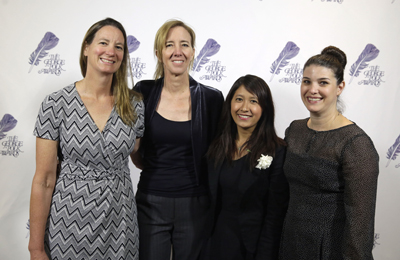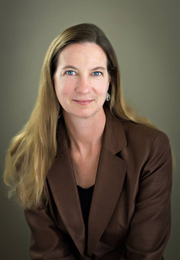Associated Press reporter Martha Mendoza, who teaches investigative reporting for the SciCom program, received her second Pulitzer Prize today for a series of stories exposing slave labor in the Thai seafood industry.
Mendoza is part of the four-person AP team that produced Seafood From Slaves, which traced slave-produced seafood from Asia to major U.S. supermarkets, restaurants, and food suppliers. The pieces resulted in the freeing of 2,000 slaves. The AP won the prestigious Pulitzer Prize and Gold Medal for Public Service, the first time AP has received the award in its 170-year history.
It is the second Pulitzer for Mendoza, an AP national reporter since 1995 who has taught investigative and policy reporting for the SciCom program for more than a decade. She won in 2000 for investigative reporting as part of an AP team that revealed the slaughter by American soldiers of hundreds of civilians at the No Gun Ri bridge early in the Korean War.
Mendoza reported and wrote the series with overseas colleagues Margie Mason, Robin McDowell, and Esther Htusan. She will spend a year in Thailand starting in July 2016 to continue reporting stories from the region for AP.
The project has garnered more than a dozen of journalism’s highest awards, including the $25,000 Goldsmith Prize for Investigative Reporting from Harvard University’s Shorenstein Center, the George Polk Award for foreign reporting, the $35,000 USC Annenberg 2016 Selden Ring Award for investigations that produce results, and the gold Barlett and Steele Award for Investigative Business Journalism.
The investigation led to the freeing of more than 2,000 enslaved fishermen from Myanmar, Thailand, Cambodia, and Laos, the jailing of perpetrators, Congressional hearings, and the proposal of new laws. The U.S. State Department used the series as part of its decision to give Thailand the lowest rating for human trafficking and has discussed the findings during diplomatic talks.
“The issue had been bubbling up a little in Southeast Asia, as some slaves escaped—but it hadn’t been getting much attention,” Mendoza told the Media Guild. “We set out to do two things that hadn’t been done before. One was to find people currently working as slaves, to put an end to the suggestions that the problem was behind us. The second thing was to specifically track the supply chain to the major retailers, so they could no longer disassociate themselves from the labor abuse.”
Winning the awards will bring more attention to the issue, Mendoza said. “The enslaved people were risking their lives when they spoke to us. Yet they told their stories with courage and integrity. They deserve the recognition.”
Mendoza's students in the SciCom program have lauded her teaching in the rigorous spring-quarter course, which she co-teaches with lecturer Peter Aldhous, investigative reporter for Buzzfeed. “Martha’s class inspired me to want to produce investigative journalism in my career, rather than just daily reports of one study or another," one student wrote. "She made me realize how much this reporting can change people’s lives, and how necessary it is and will always be.”
Another recent student summarized: “I see the world differently now, imbued with the desire to hold people accountable, to promote justice by abolishing secrecy, and to exploit the public record to inform and empower citizens. I know that sounds like something Superman would say, but that’s how I felt in this class.”
Mendoza is a UC Santa Cruz alumnus, earning her degree in journalism and education in 1998. She lives with her family in Santa Cruz.
Guy Lasnier of the UCSC News Office contributed to this report.


